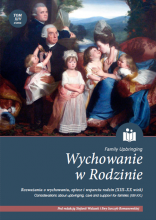Polityka rodzinna w krajach Europy Środkowej
Family-friendly policy in Central European countries
Author(s): Mirosław ZdulskiSubject(s): Education, Sociology, Social history
Published by: Zakład Historii Edukacji w Instytucie Pedagogiki Uniwersytetu Wrocławskiego
Keywords: demographic change; pro-family policy; Central Europe
Summary/Abstract: The demographic changes in Central Europe which started in the 80s of the 20th century began to resemble the changes which were noticed earlier in the countries of Western Europe. Fertility gradually decreased, sometimes even below the simple reproduction rate, the number of marriages dropped and the age when they were made was changing. The model of the family underwent transformations which caused changes in family structures. What followed was a fast change from the so called traditional reproduction to modern reproduction. Demographers are looking for the causes of the above mentioned changes in the influence of economic factors and changes the world view. They also emphasised the need for a family-friendly policy. An important influence on the type of policy of a given country is tradition, the implemented socio-economic policy (e.g., conservative, liberal), the economic situation and public opinion. In a narrower sense it is defined as benefits and services for people with children and single parents. Such an approach means the readiness and constant support in the form of financial transfers made to the families, tax relief for families with children, maternity leaves, the creation and maintenance of institutions which offer child care and family law. In a broad sense, family friendly policy covers all areas of social policy which can potentially have an influence on the good of the family (subsidies towards children’s travel costs, education, safety, housing, etc.).The aim of this paper is to describe the changes in the field of demography which took place after 1989 and their effects on families, as well as the policies implemented in the Czech Republic, Poland, Slovakia and Hungary in order to increase reproductionand the number of marriages.
Journal: Wychowanie w Rodzinie
- Issue Year: XIV/2016
- Issue No: 2
- Page Range: 369-389
- Page Count: 21
- Language: Polish

